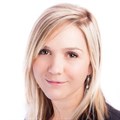Late last year the World Economic Forum's (WEF's) Global Gender Gap Report showed that the global gender gap had widened for the first time in the 11 years of the study. The decline may not seem that significant - 32% in 2017, compared to 31.7% in 2016 - but the ramifications are severe.

Temitope Iluyemi, associate director, global government relations, Procter & Gamble.
According to WEF, it could now take an estimated 217 years for the global gender gap to close, if progress continues at this glacial pace. That means that our children, our grandchildren, our great grandchildren, and even our great, great grandchildren, will not live in an era of gender equality.
If social, political, and economic inequality are not adequate reasons to spur a desire for change, then perhaps dollar signs can serve as motivation.
McKinsey’s Women Matter 2017 Report found that African companies with at least 25% of women on their boards were achieving an earning margin that was about 20% higher than the industry average. The report also noted that $12 trillion could be added to global GDP by 2025 simply by advancing women’s equality.
Shaping the future of Africa
In May this year the Global Shapers Community gathered in Johannesburg for the Shape Africa Conference to discuss ways of narrowing the gender gap on our continent. The Shapers are a network of young people in 158 countries driving dialogue and change. The conference aimed to further develop the partnership between P&G and the Global Shapers Community to raise awareness of gender inequality and continue P&G’s #WeSeeEqual campaign, which was started in 2017.
I was privileged to be part of a panel discussion at the Shape Africa conference, where we focused on examining the gender gap issues in Sub-Saharan African communities specifically and exploring existing and potential Shaper projects that could help narrow the gap in our region. We looked at the conscious bias that comes from long-standing cultural norms and traditions, such as men being the head of the household. We also explored unconscious bias, which shows up in subtle attitudes and behaviour that we often don’t even see.
Rwanda leads the way
An interesting case study for gender equality on our continent was the example of Rwanda, the only African country to appear in WEF’s Top 10 list of most equal countries in terms of gender – they were in fact, number four – ahead of nations like the UK (15), France (11), and even the United States (49).
Rwanda excels particularly in the arenas of economics and politics. This country has one of the highest rates of female labour force participation in the world at 86% - in the US, that figure stands at 56%. The wage gap is also narrower – in Rwanda, women earn 88 cents for every dollar men do; in the US, it’s just 74 cents.
Many of the reasons for Rwandan women’s empowerment in the workforce can be traced back to their better political participation. Rwanda’s laws stipulate that their parliament must be 30% female, which means that they put important but otherwise neglected issues on the table, such as a woman’s right to maternity leave.
Rwanda’s narrowing gender gap in terms of economics and politics can be largely attributed to the tragic genocide in 1994, where women made up between 60% to 70% of the surviving population. It was out of necessity and new equality laws that women became more active participants in Rwanda’s economy and parliament.
Rwanda’s equality still has a way to go, however. For example, prosecuting genocide-era rapists is not a priority for this nation, and violence against women is also unacceptably high - in 2011, 93% of victims of abuse here were women.
Why global corporations have a responsibility to advocate gender equality
As part of the P&G team in Africa, I believe that P&G is an excellent company case study of how a global citizenship of gender equality can achieve real dividends, not only for the prosperity of a company, but for the society within which it operates. Female empowerment is a natural focus area for P&G, as most of our products are made uniquely for women and girls, and women buy or influence the purchase of virtually all the rest
Because we improve the lives of billions of people every day, and are therefore an influential force globally, P&G wants to use our voice and actions to tackle gender bias – and to do it in a way that sparks conversations and motivates change. We know that when we make gender bias visible, we bring awareness to it and therefore have the power to change mindsets.
One of the ways we do this is through advocating for gender equality in advertising and media. For example, our Always #LikeAGirl movement is being fueled by the millions of girls around the world who are changing the phrase “like a girl” to mean amazing things, rather than undermining girls’ achievements and strengths.
We even recently tackled the subtle bias conveyed through emojis, resulting in the UNICODE Consortium to release 44 new “girl-power” emojis, which are now used globally.
We also have initiatives that address barriers to education for girls, such as the Always Keeping Girls in School Programme, which provides sanitary towels and puberty education for girls who cannot afford them and whose education is suffering as a result.
The programme has been active in Africa for over 10 years now and has ensured that almost 200,000 girls are still able to attend school, even when they have their periods.
Lastly, P&G is modelling a gender equal reality within our own walls, by building an organisation with a vision for 50-50 representation of women and men – for all ethnicities, at all levels, in all parts and all regions of P&G. We have currently reached 31% female representation at board level globally, and Africa is catching up, with 39% of senior management roles occupied by women.















